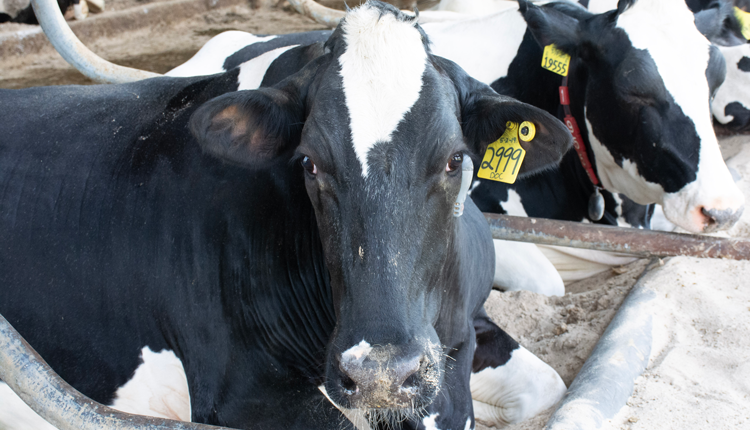
Animal welfare is a multifaceted concept that goes beyond physical appearance and performance. While it's easy to focus solely on the animals themselves, it's crucial to recognize the significant role that humans play in shaping and influencing the welfare of animals. As part of its commitment to animal welfare, the Dairy Cattle Welfare Council is proud to announce David Fraser as the keynote speaker at the annual symposium that will be held in Kansas City, Mo. on June 5 and 6, 2024.
Fraser, a renowned expert from the University of British Columbia, explores how human actions impact animal welfare. His work emphasizes empathy toward and ethical treatment of animals, urging society to reconsider norms. Fraser also stresses the importance of education in promoting positive attitudes toward animal welfare. Through bridging research with practical application, he aims to create a more compassionate society where animals are treated with dignity and respect.
Fraser's work goes beyond the conventional understanding of animal welfare, delving deep into the human dimension of this complex issue. He emphasizes that human attitudes, behaviors, and interactions with animals have a profound impact on their welfare. Through his research, Fraser sheds light on the various ways in which human actions can either enhance or compromise the well-being of animals. Several of his viewpoints are elegantly explored in the second edition of his book, Understanding Animal Welfare: The Science in its Cultural Context.
One of the central themes in Fraser's work is empathy toward animals. He believes that cultivating empathy is essential for improving animal welfare outcomes. By fostering empathy, individuals are more likely to recognize the needs of animals, leading to more compassionate treatment. Fraser's research demonstrates that empathy is not only beneficial for animals but also for humans, as it promotes greater understanding and respect for all living beings.
During his keynote address, Fraser will cover the importance of understanding animals and how the skillful and consistent handling of animals improves animal-human interactions. He will demonstrate how training staff to promote positive attitude toward animals and having facilities that allow positive human-animal contact prevent situations that induce negative interactions and ultimately improve worker satisfaction and animal welfare. Considering the importance that human attitudes, behaviors, and interactions with animals have on welfare, Fraser will explore how the health and mental health of dairy producers and staff are crucial elements in the welfare of their animals.
Another crucial aspect of the human dimension of animal welfare is the ethical considerations surrounding our treatment of animals and policies that guide it. Fraser challenges traditional views that focus on human interests with little or no regard to the animal needs. He argues for a more ethical approach that values the inherent worth of all animals and acknowledges their right to a life free from suffering. By examining the ethical implications of our actions toward animals, Fraser encourages society to reconsider prevailing norms and adopt more humane practices. For instance, Fraser will prompt attendees to contemplate the impact of larger "human institutions" on animal welfare. He will illustrate this with scenarios such as the transportation of cull cows and surplus calves, demonstrating how economic pressures, regulatory frameworks, and facility distribution can inadvertently lead to undesirable animal welfare issues.
Throughout his career, Fraser highlighted the role of education and awareness in promoting positive attitudes toward animal welfare. He has emphasized the importance of teaching all about the needs and behaviors of animals, as well as the ethical responsibilities that come with interacting with them. Through education, Fraser proposes that individuals can develop the knowledge and skills necessary to make informed decisions that prioritize animal welfare, while preserving the sustainability of the dairy industry. In his keynote address, Fraser will demonstrate that animal welfare standards, in addition to focusing on the environments where animals are kept, should also focus on developing and promoting professional standards for the capability and performance of the people that interact with them.
The Dairy Cattle Welfare Council remains steadfast in its dedication to both animal welfare and the success of dairy producers. The forthcoming keynote address at the 2024 symposium underscores this commitment. With a reduction in the labor force and increased pressure for efficiency, the importance of human-animal interactions will continue to grow for its impact on the well-being of dairy producers and staff and the welfare of animals. Together, with a focus on empathy, ethics, and education, we can strive toward a dairy industry in which animals thrive and production remains highly efficient and sustainable.
Ricardo C. Chebel is a professor at the University of Florida’s College of Veterinary Medicine and current president of the Dairy Cattle Welfare Council.






